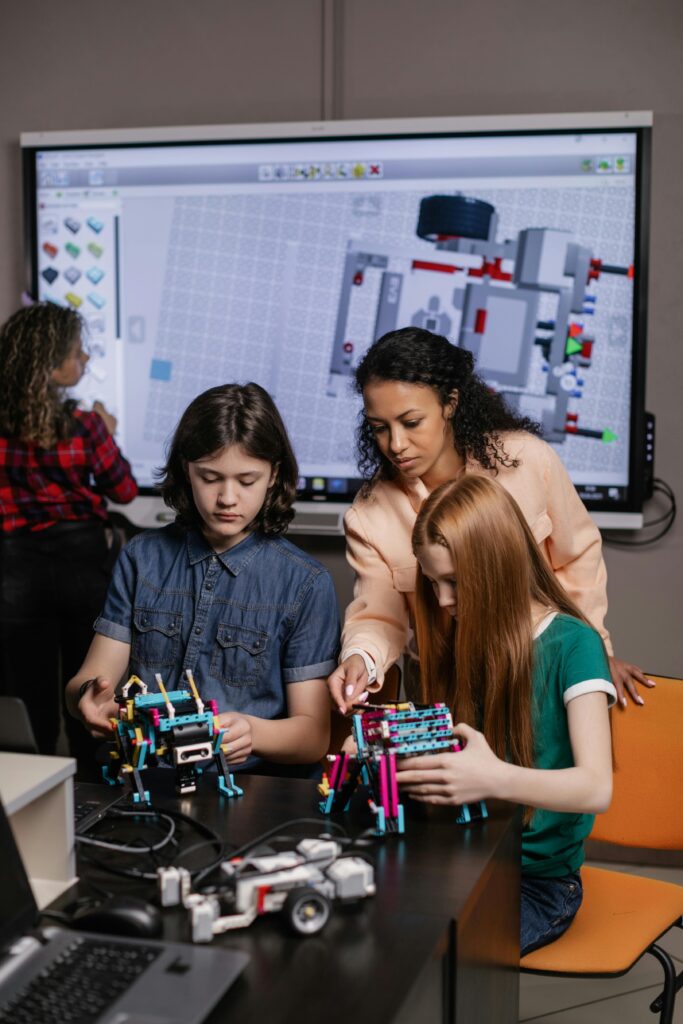about IE
Early childhood STEM education | how we got started
Early childhood STEM education | mr & mrs overpeck
Early childhood STEM education
Mr & Mrs. Overpeck are owners of the Innovation and Exploration STEM Early Learning Center. They both play an active role in the day-to-day running of the program. Mr. Overpeck is the Executive Director of all the locations and has a Bachelor’s Degree in Advertising. Mrs. Overpeck serves as the Preschool Director of their Huntingdon Valley location and has been working in the early childhood education field for over 15 years. Mrs Overpeck has a Master’s Degree in Education with a concentration in Special Education and a Graduate Certificate in Autism. She is also a Licensed Behavior Specialist in PA and serves on the Board of Directors for the Victim Services Center of Montgomery County (VSC). Mrs. Overpeck taught workshops for PA Head Start and PA Early Childhood Summit on “How to Implement STEM in Early Years”. She currently serves on The State Advisory Council on Early Childhood Education and Care (SAC) Subcommittee on Physical, Behavioral, and Mental Health. STEM preschool

How the STEM Preschool got started?
As an educator with many years of experience, Mrs. Overpeck has always placed substantial importance on teaching young children and developing their curious minds. Also encouraging the gradual development of diverse skills at their own pace, to build upon these skills in the future. Throughout her career, she also has placed significant emphasis on introducing a STEM curriculum to young children in her preschool classroom, recognizing the importance of establishing a robust foundation from an early age. There is a misconception that STEM programs are primarily designed for middle school and high school students. As a staunch advocate for the integration of STEM Education, she firmly believes that a STEM curriculum should be a fundamental and indispensable component of every preschool’s educational framework. During Mrs. Overpeck’s Master’s program in Education, she completed a class in STEM Education. She was so amazed by the hands-on learning aspect of it and how all four areas were connected to help students understand one concept. She wanted to learn more about STEM Education so she conducted her Master’s Thesis to further research and identify: The benefits of STEM Education in preschools. The challenges do early childhood education teachers face when implementing STEM education in the classroom? The relationship between early childhood teachers’ beliefs about readiness for teaching STEM and their teaching experience? Introducing STEM concepts at an early age helps children become familiar with fundamental ideas in science, technology, engineering, and math, laying a strong foundation for future learning. The STEM activities enhance critical thinking and problem-solving skills. Children learn to analyze situations, make decisions, and find creative solutions, which are valuable life skills. She was also amazed to see three and four-year-olds were making additions in their heads and applying the skills they had gained. Teaching STEM promotes collaboration and communication among children when compared to the children who were not in the STEM program. These social skills are crucial for future academic and professional success. She is honored to get the opportunity every day to provide such a unique experience to young children as they strive to reach their fullest potential. Incorporating STEM Education in the early years provides a multitude of benefits, preparing children for academic success and instilling skills that are crucial in today’s rapidly advancing world. Early childhood STEM education
